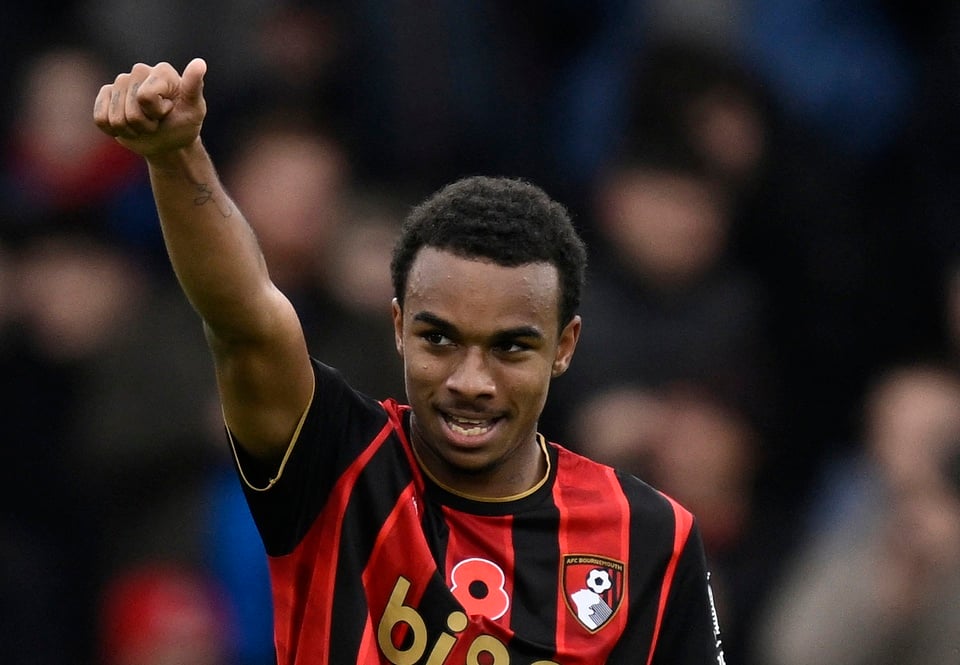 |
Bournemouth are an interesting phenomenon of the Premier League. |
In a turbulent summer, Bournemouth parted ways with almost half of their squad – from the goalkeeper, three-quarters of the defence to influential stars – for a total of more than £200 million, but still started the 2025/26 season with the most impressive run of form in the club's history: 15 points after 8 games, finishing 5th in the table.
Instead of collapsing, Andoni Iraola's Bournemouth are more mature, pragmatic and attractive than ever.
From “transfer station” to smart model
What sets Bournemouth apart is that they don’t try to hide their status as a small club, but instead use it to their strategic advantage. They accept the status of a “feeder club”, but they control the rules of the game.
This summer, Bournemouth sold Dean Huijsen to Real Madrid, Milos Kerkez to Liverpool, Illia Zabarnyi to PSG - three deals that any mid-table club would dream of. They know that the move to a bigger club is what attracts new young talent. Bournemouth don't just buy players - they buy ambition.
The club's message is clear: “Come here and you will grow. When the time comes, we will help you go further.”
It was a promise that kept Antoine Semenyo, who had been offered £50m by Man Utd and Tottenham, from signing a new contract. It was no secret that Bournemouth and Semenyo had agreed a secret release clause - a commitment for both parties.
Result: Semenyo is now only behind Haaland in terms of goals (6 compared to 11 in the Premier League), his form has given Bournemouth the most dangerous attacking weapon in the league. And when the day comes to say goodbye, they will certainly earn more than double the 50 million that was rejected.
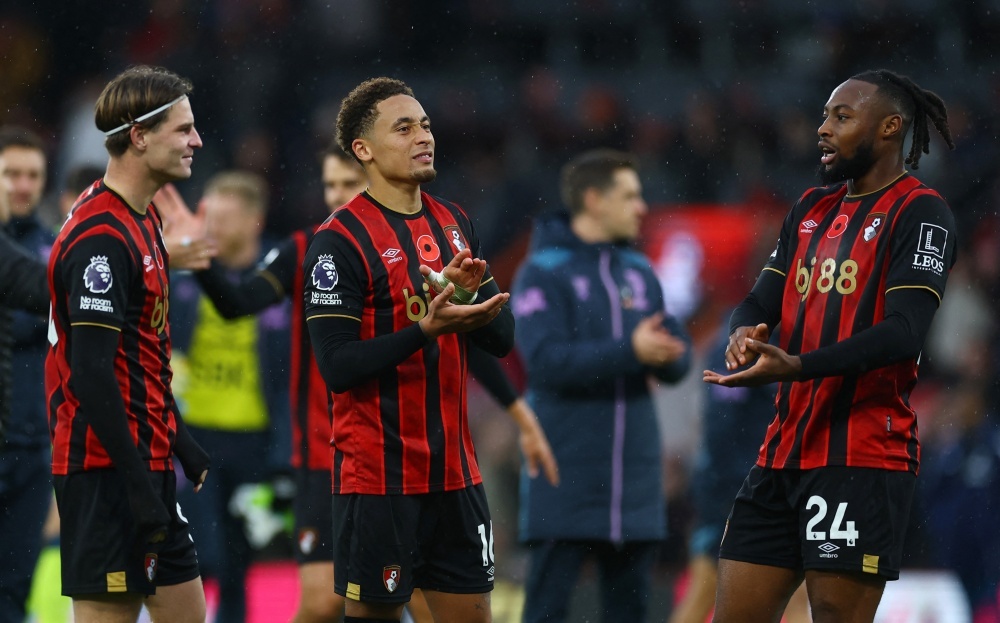 |
Bournemouth have been constantly surprising lately. |
The difference between Bournemouth and the rest of the “rich league” is initiative. They are not driven by the market; they lead their own market.
When Brentford made a surprise £40m bid for Dango Ouattara, Bournemouth agreed – but didn’t panic. They had two new signings on the books: Amine Adli from Leverkusen (£18.25m) and Liverpool’s young talent Ben Gannon-Doak (£25m). Both deals were signed before Ouattara left.
They did the same with their defence: Kerkez left, Adrien Truffert (£14.4m, from Rennes). Zabarnyi went to PSG, immediately bringing in Bafode Diakite from Lille (£34.6m). Huijsen - who left due to a £50m clause - was replaced by Serbian centre-back Veljko Milosavljevic.
No panic, no “deadline chasing”. Every exit was planned. The so-called “loss” was actually calculated many months in advance.
Bournemouth’s success is not a miracle, but the product of a transparent and humane philosophy. They understand that they cannot compete with the big guys with money, so they pay it back with trust and promises kept on time.
“We will help you leave - if you help us first,” is what every player hears in the first negotiation session.
It is this honesty that creates trust. Players know that if they play well, the club will not stand in their way. Instead, they must give their all while they are there.
When Everton, West Ham, Palace or Leverkusen sent in offers for Tavernier, Brooks, Kluivert, Bournemouth flatly refused because they were not part of the plan to sell this year. Two players were extended, one kept his contract until 2028. The club did not need to sell more - and more importantly, they did not lose control.
Unlike football corporations with multiple layers of leadership, Bournemouth operates with a four-person framework: owner Bill Foley, director of football Tiago Pinto, technical director Simon Francis and head coach Andoni Iraola. This compactness helps the club react quickly and minimize power conflicts.
Bournemouth’s data analytics department uses a system that rates players based on “potential growth” performance rather than current stats. They don’t buy stars – they buy stars-to-be.
That's why they rarely fail in the transfer market: every signing has a dual objective - to perform now and to be sold later.
Iraola - the fire keeper
All of this only makes sense when you have a manager who can develop players. And Bournemouth have the perfect man in Andoni Iraola.
The Spanish tactician brought a modern pressing style, speed and discipline. He turned players considered “just average for the Championship” into Premier League stars. Every name that left Bournemouth was worth double, even triple, compared to when they arrived.
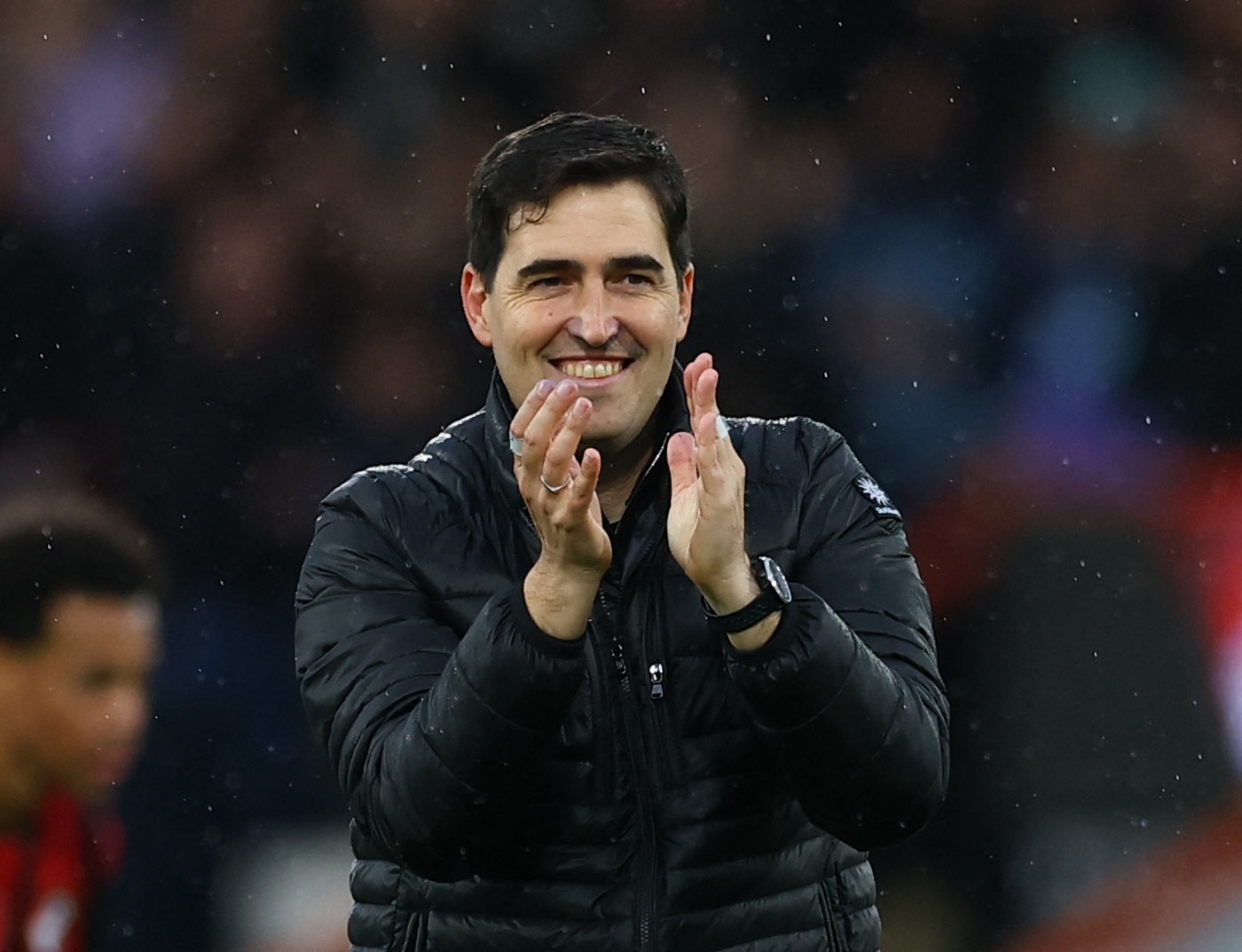 |
Andoni Iraola helps Bournemouth fly high. |
But now the club faces another challenge: keeping hold of the man who mapped out the success. Iraola is in the final year of his contract and will not discuss his future until the end of the season, while Bournemouth do not want to wait. They know that losing him would affect the entire “develop – sell – regenerate” model.
Bournemouth are now one of the few Premier League clubs to have a positive net profit of over £100m after the transfer window, while improving their position and squad quality. They meet the Profit and Sustainability (PSR) regulations perfectly, keep their payroll lean, and have a highly motivated group of players – because everyone sees the future.
In an era where many clubs are in debt, Bournemouth are a rare example of sanity: they thrive because they know who they are. They have no illusions, no fear of selling, no fear of starting over.
From a small team in the South of England, Bournemouth is now a model of the modern Premier League - where "selling players" does not mean weakening, but is the only way to strengthen.
And if they continue to stick to their “sell to evolve” philosophy, then every departure from Vitality Stadium is no longer a loss - but part of a victory.
Source: https://znews.vn/bournemouth-ban-200-trieu-bang-cau-thu-nhung-van-manh-hon-post1597301.html


![[Photo] Draft documents of the 14th Party Congress reach people at the Commune Cultural Post Offices](https://vphoto.vietnam.vn/thumb/1200x675/vietnam/resource/IMAGE/2025/10/28/1761642182616_du-thao-tai-tinh-hung-yen-4070-5235-jpg.webp)




![[Photo] National Assembly Chairman Tran Thanh Man received a delegation of the Social Democratic Party of Germany](https://vphoto.vietnam.vn/thumb/1200x675/vietnam/resource/IMAGE/2025/10/28/1761652150406_ndo_br_cover-3345-jpg.webp)


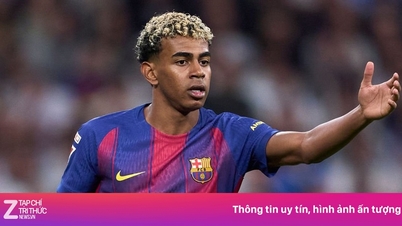
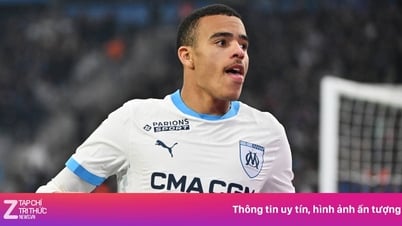
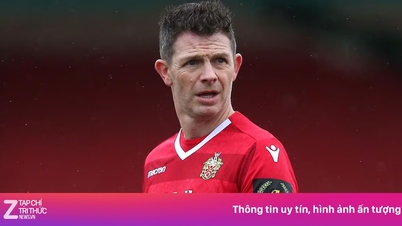


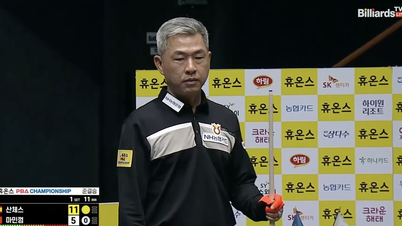





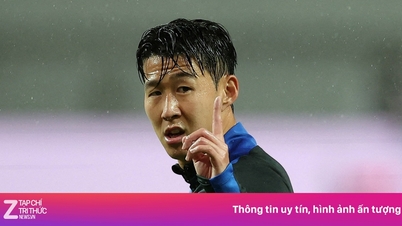

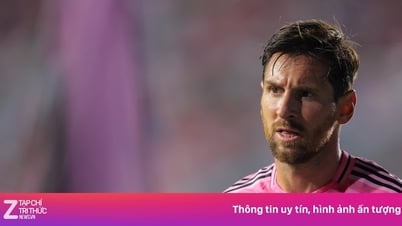
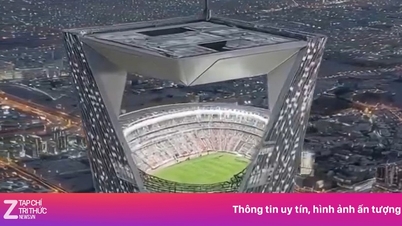
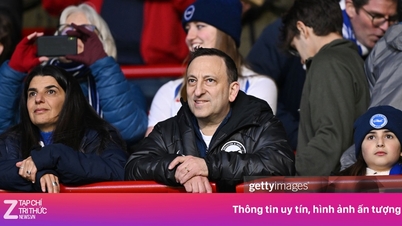


![[Photo] President Luong Cuong attends the 80th Anniversary of the Traditional Day of the Armed Forces of Military Region 3](https://vphoto.vietnam.vn/thumb/1200x675/vietnam/resource/IMAGE/2025/10/28/1761635584312_ndo_br_1-jpg.webp)
































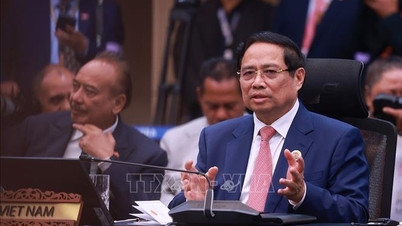

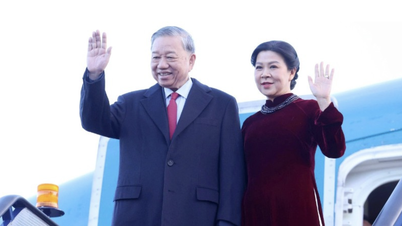





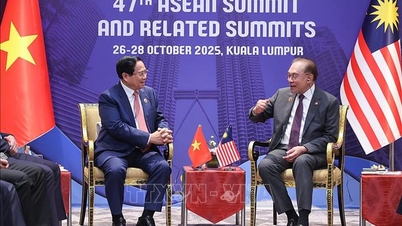

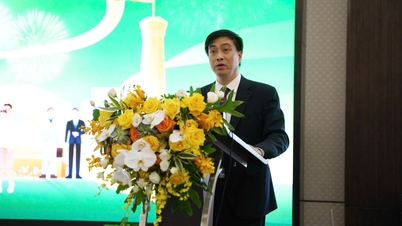


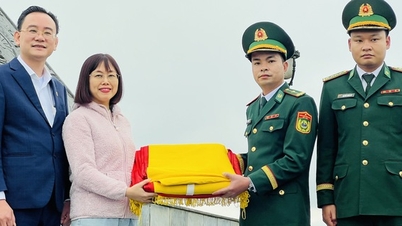



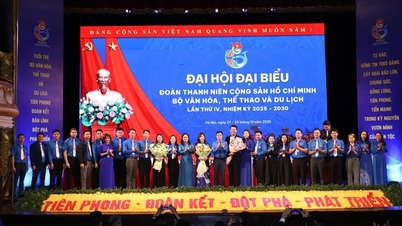






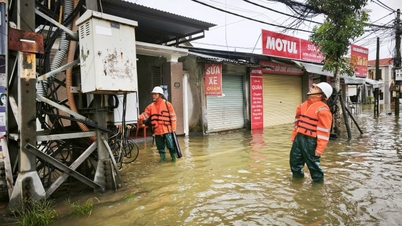

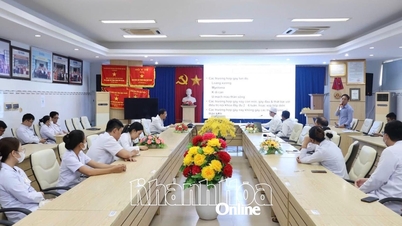












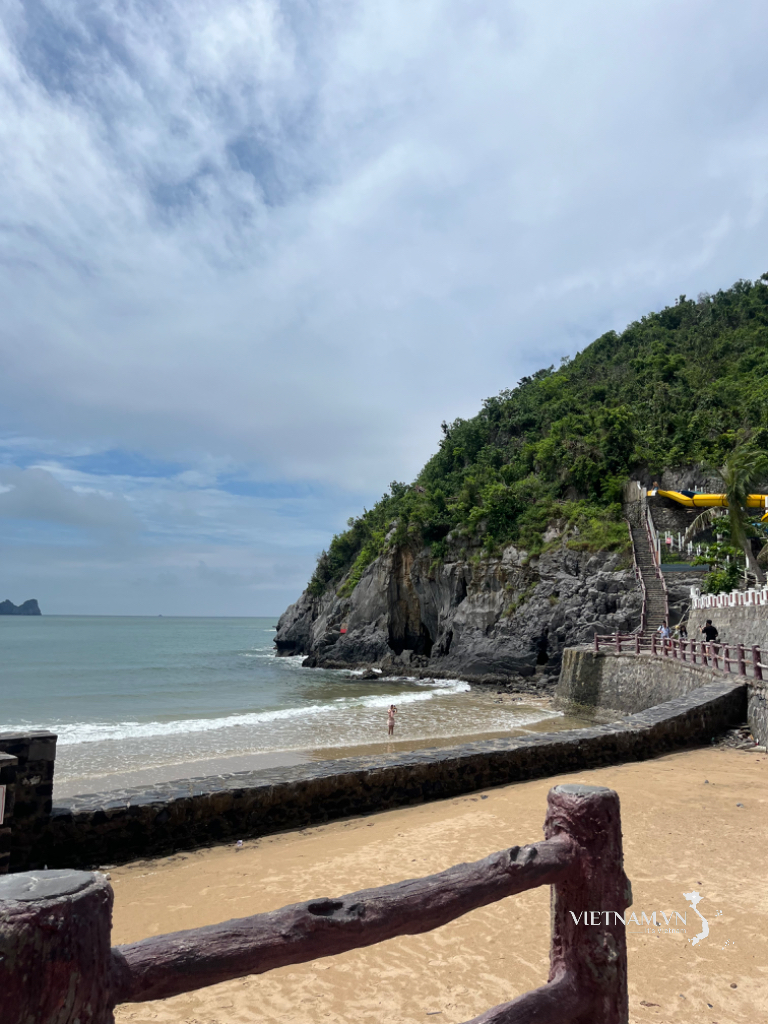



Comment (0)